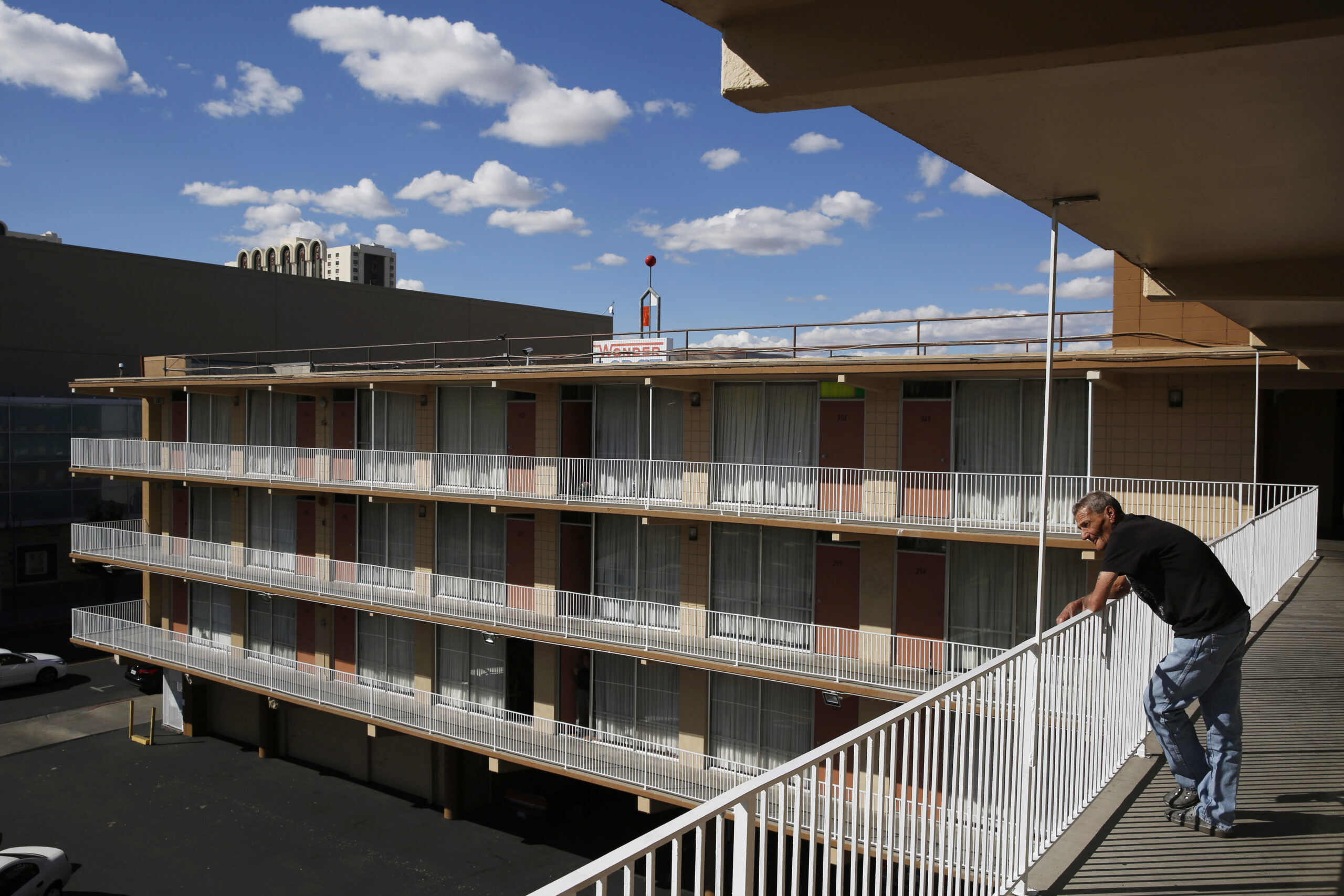The Georgia Court of Appeals could decide if guests at extended stays ever become tenants. The question, which went before judges Tuesday, determines whether the hotels must follow state eviction laws.
The three residents of Efficiency Lodge originally filed the lawsuit last fall to keep their housing. They fell behind on rent during the pandemic, and the extended stay was threatening to lock them out.
Former Georgia Gov. Roy Barnes told judges the hotel has that right. He is the attorney for the extended-stay chain, owned by his brother, Ray Barnes. He said every contract describes Efficiency Lodge as a hotel and the people it rents to as guests.
When those guests don’t pay, the contract says they have to leave.
“If they don’t want to enter into that relationship, do not sign it,” Barnes said.
But that relationship doesn’t match reality, according to Lindsey Siegel of the Atlanta Legal Aid Society. She represents the plaintiffs, who have lived at Efficiency Lodge for as many as five years.
“Your honors, we’re here before you today because our three clients made efficiency lodge their home,” Siegel said.
They have the hotel address listed on their IDs, Siegel said. It’s where they receive mail. One resident paid a security deposit.
She said Efficiency Lodge knows residents stay there long-term. The contract for one of the plaintiffs included a check-in date but no check-out date.
“Despite what it calls itself, Efficiency Lodge acted as a landlord to our three clients,” she said.
That means the hotel can’t lock them out–it has to evict these residents in court. A DeKalb County Superior Court judge previously agreed. The Southern Poverty Law Center, Atlanta Volunteer Lawyers Foundation and Housing Justice League filed a brief in support.
Typically, the eviction process can take about a month in Georgia. That hasn’t been the case during the pandemic. Since September of last year, the Centers for Disease Control has protected tenants from evictions for nonpayment of rent.
That moratorium, however, doesn’t apply to temporary stays at hotels. In Tuesday’s oral arguments, Barnes argued no one ever tried to call Efficiency Lodge a landlord until the CDC eviction ban went into place.
He said if there is a length of time when guests at Efficiency Lodge turn into tenants, he would like the court to tell him. The hotel will simply move guests out before that point.
“Efficiency is not a landlord, does not want to be a landlord and will not be a landlord.”
It could be months before the Georgia Court of Appeals issues its ruling.









